Prime Minister Robert Fico’s second government has had to deal with several scandals in the health sector during the past four years with overpriced procurements forcing several top Smer party officials from their posts.
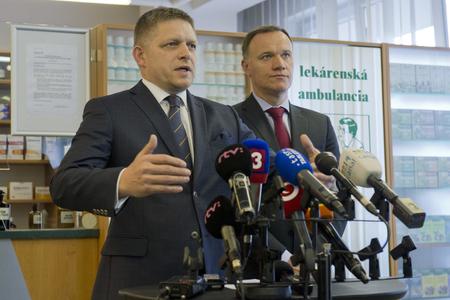
Overpriced CT device
The biggest scandal was connected to the planned purchase of a computed tomography (CT) device by Piešťany hospital. The hospital wanted to buy it for nearly €1.6 million from the Medical Group company, connected to then-speaker of parliament Pavol Paška.
Two other hospitals which bought the same device, however, paid much lower sums: the hospital in the Czech town of Havlíčkův Brod paid €540,000, while the polyclinic in Sekčov (a neighbourhood in Prešov) paid €418,000. The dubious purchase was reported by two employees of the hospital, doctor Alan Suchánek and nurse Magdaléna Kovačovičová.

The scandal resulted in a major political fallout in late 2014. Then-health minister Zuzana Zvolenská stepped down, while also Paška and his deputy Renáta Zmajkovičová, who at the time served as head of the Piešťany hospital’s supervisory board, resigned. Zvolenská has since taken a job in Brussels.
The only person who remained in the post was hospital’s head Mária Domčeková. She was, however, charged with the crime of violating duties when administering public property along with another seven people in September 2015, and later dismissed by board of directors.
The scandal attracted the attention of the public, and several protests were held in the streets of Bratislava and Košice, drawing hundreds of people.
Meanwhile, Zvolenská’s successor Viliam Čislák has faced two no-confidence votes initiated by the parliamentary opposition.
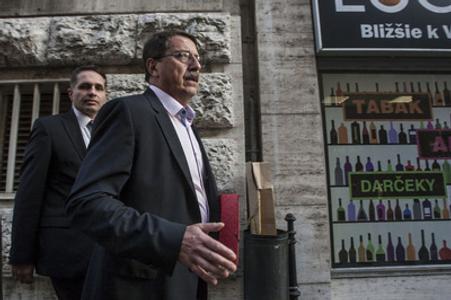
Family ties
Another major scandal erupted in September 2015. Then-head of state-run health insurer Všeobecná Zdravotná Poisťovňa (VšZP) Marcel Forai announced his decision to resign after Miroslav Beblavý of the non-parliamentary Sieť party raised suspicions that Forai had preferred seven companies in state contracts where his aunt Anna Sučková is a partner. Beblavý backed his accusations with 69 agreements worth €14 million which VšZP had signed with these companies since 2012.
Slovak media have since reported on what they dubbed the “octopus in health care”, a Košice group of businesspeople close to the ruling party.
The past of Forai’s successor Miroslav Vaďura, however, is also in question. Shortly after being appointed to the post, media were quick to point out that he too had relatives doing business in health care, namely his brother-in-law, Zbyhněv Stebel. Vaďura and Stebel, whose wives are sisters, even did business together in the past, the Sme daily reported.
He is also connected with some earlier scandals in health care, like the overpriced purchase of CT device when he headed the University Hospital Kramáre in Bratislava, and the dubious sale of land plots under the heliport at Kramáre.
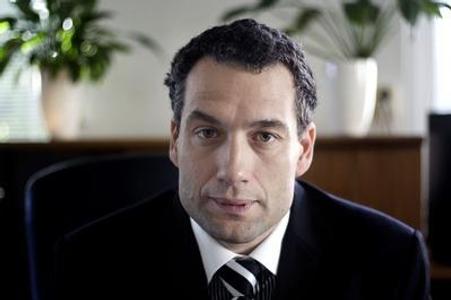
Altered medical records
Back in March 2013, Michal, a premature baby, was born with pneumonia. Personnel from Nitra Hospital treated Michal with what might have been an excessive doses of the antibiotic Gentamicin. After experiencing acute renal failure, the boy was transferred to the Children’s Faculty Hospital in Bratislava, where the staff grew suspicious of excessive Gentamicin in Michal’s medical record, according to the Sme daily.
Later, during a second hospitalisation in Nitra, a doctor signed off on the notations from the Children’s Faculty Hospital. Sometime after this, the notations about Gentamicin disappeared, and it is alleged that the head of the newborn clinic at Nitra Hospital Alena Ďurišová erased them from the record, which would be a crime.
Paediatrician Zuzana Pechočiaková alerted Jozef Valocký, the Nitra Hospital director and Smer member, with suspicions that Michal’s records had been altered. She was punished for doing so and Valocký instead defended Ďurišová.
He confirmed the truth only after Sme published the evidence. Ďurišová was dismissed from her post. The case was then checked also by the Health Care Supervisory Authority (ÚRSO), but it did not find any misconduct.

Restructuring plan by boilerman
The Health Ministry faced another scandal in early 2013 when private broadcaster TV Markíza reported that a man whose day job is to shovel fuel into boilers drafted a management restructuring plan for Žilina’s main, state-run hospital.
The hospital was ordered to make the restructuring plan by then health minister Zvolenská to help reduce debt. Head of the hospital Štefan Volák paid the company PP Partnership €10,000 to draft the plan. Its authorised representative was reported to be Juraj Majer, a boilerman, who conveniently lived in the same village as Volák.
Sme obtained the document which on four pages described the situation in the hospital, and on further three pages proposed the measures to improve it. While INEKO think tank analyst Dušan Zachar criticised the plan, saying he would expect amore detailed document which would offer concrete solutions, the Health Ministry defended it, saying it is crucial for improving the situation in Žilina hospital, the daily wrote.
The hospital however did not cut its debts, which exceeded €400 million in the end of 2014, according to Sme.

Overpriced food
At the end of 2014 Sme reported that hospitals in Trenčín, Trnava, Banská Bystrica and Prešov signed overpriced catering contracts with mutually intertwined companies.
The daily and Transparency International Slovensko (TIS) reviewed the contracts and found that the hospitals would pay external caterers nearly €81 million including VAT over the course of 10 years. Trenčín hospital signed a contract with the company Hospital Catering Solutions (HCS) and the other three hospitals with the Dora Gastro company. Both are connected with one person, Peter Bittó.
The contracts show that while most hospitals obtain food for patients for less than €5 per day, in these four state hospitals the sum oscillates between €8.30 and €10.80. The food in other hospitals cost about half as much, according to Sme.
Following the scandal, Čislák dismissed all directors of the hospitals, as well as Health Ministry’s service office head Martin Senčák who approved the procurements.
While all four directors found job elsewhere, Senčák became deputy head of ÚRSO, Sme reported.
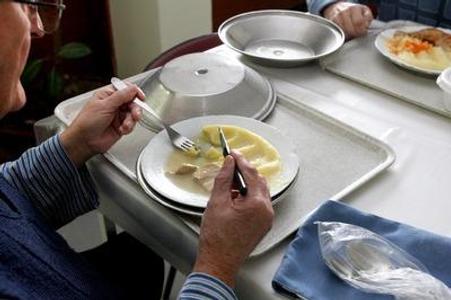
Nurses resign
Most recently, about 600 nurses in eight Slovak hospitals resigned in protest against the amendment to the law on health care adopted in November 2015, saying it does not stipulate that their wages should be calculated based on years of practice, and nor that wages should be re-evaluated every three years. The most serious situation occurred in Žilina and Prešov where about one-fifth of all nurses have resigned.
Though nurses may continue resigning in the coming months, the Health Ministry says that the care for patients in hospitals is secured. He also filed a criminal complaint against nurses on February 1 at noon, for spreading alarming news about a million patients being threatened in connection with the mass resignations.
This is, however, not the first protest action of nurses. They protested already in 2011 and 2012, which at the time resulted in agreement with the government led by Iveta Radičová and adoption of the law guaranteeing them minimum salaries in February 2012.
The law was, however, challenged by then-president of the Slovak Medical Chamber, Milan Dragula. He filed a complaint with the Office of the General Prosecutor in which he alleged the law was unconstitutional. The prosecutor later sent the complaint to the Constitutional Court, which subsequently passed a preliminary injunction suspending the law at a non-public session held on July 11, 2012.
The ruling provoked waves of discontent among nurses.
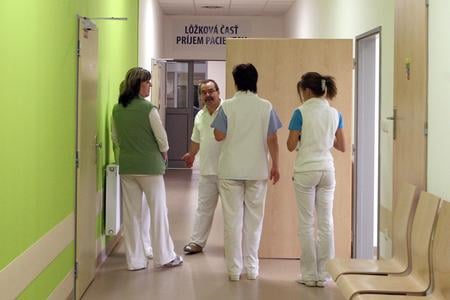


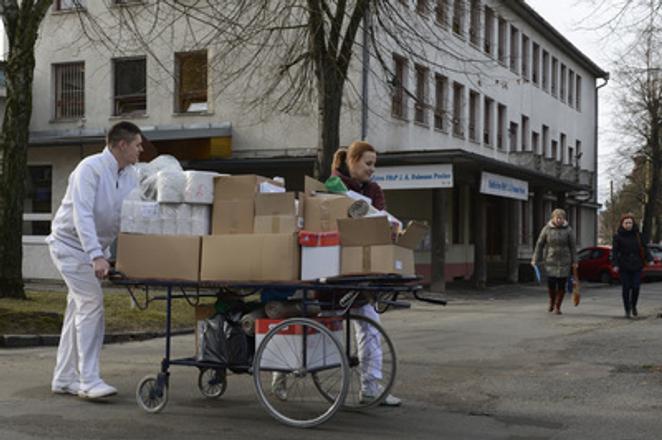 Prešov hospital strongly feels lack of nurses. (source: TASR)
Prešov hospital strongly feels lack of nurses. (source: TASR)